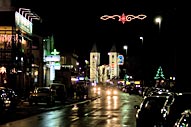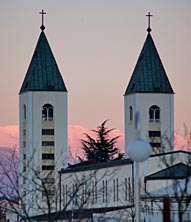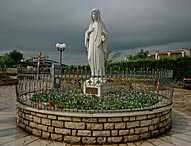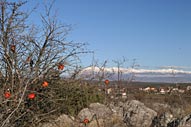date: 04.08.2018.
Dear young brothers and sisters in Christ!
As I look at you all here with joy – full of youth and future – I am greeting you all in this Medjugorje communion of so many different people and cultures. It is as if we had brought to life the events from the Acts of the Apostles, when Parthians, Medes and Elamites all met together. (cf. Acts 2, 9-11), by creating the new communion of Christ's mystical Body – of the Church. How beautiful this face of the Church is in you here, in this fellowship created from all over the world! How beautiful it is to praise God and to grow in the faith. Also, teaching of the New Testament shows us how this experience of faith is important. Let us remember how Jesus calls two disciples who wanted to follow Him and says to them: „Come and see!“ (Jn 1,39), while Phillip also said to Nathanael: „Come and see“ (1 Jn 1,46).
I would like that each one of us here, out of this experience of faith in Medjugorje, may bring to life the invitation of the Church. It is the Second Vatican Council that says how each one of us: „must stand before the world as a witness to the resurrection and life of the Lord Jesus and a symbol of the living God.“ (Lumen Gentium 38). Also, St. John Paul II gave the same message saying: „People today put more trust in witnesses, than in teachers, in experience than in teaching, and in life and action than in theories “ (Redemptoris missio, 42).
In that light, let us look at the facts and the messages of the Gospel we have just heard. The conversation between Jesus and the people takes place after He multiplied the bread. They were thrilled and wanted to appoint Him as the king straight away, but Jesus escapes from them and goes to the quiet place. However, desire to have more and more bread makes these people search for Him. They found out that He was on the other side of the Lake Tiberias and found Him there on the following day, when the dialogue we just heard takes place.
When Jesus multiplied the bread, He did not just do a visible and a concrete act, good for the hungry people, but He also gave a divine sign. He wanted to prepare those people for something richer and more abundant, later on to give them that – the gift of Himself. For, He came to the world “for our salvation” (Nicene), “so we would have life, life in the fullness” (Jn 10, 10). The sign always has some other, deeper, meaning - there is a message more profound than the one we see at first sight. Besides, in all of the mysteries of Revelation there is „indissoluble unity between the signifier and signified makes it possible to grasp the depths of the mystery.“ (Fides et ratio 13).
According to Jesus, people who were fed were looking at the sign of God, yet they did not see it! Instead of following the sign, they followed the bread. For them, it was more important to be fed and they cared even more to be permanently fed, so the future times would also be secured. They have not sensed the sign of God in the gesture of the multiplication of the loaves, although they have seen it.
Only their stomachs followed Jesus. Yet, we heard in this Gospel excerpt how Jesus invited them to something else: Do not work for the food that perishes, but work for food that endures for eternal life, which the Son of Man will give you. (Jn 6, 27) Jesus clearly says here that the food that endures for eternal life is nothing man can provide on his own for himself. There is nothing he can do to get that, he can only accept it in gratitude once the Son of Man gives it to him.
Still, they remain blind and deaf and they ask Jesus again what they must do to carry out that work (so, their own effort again). Now Jesus clearly says what was expected: This is the work of God, that you believe in the one he sent. (Jn 6, 29). People were again not prepared to believe, but even after they had seen God’s sign of multiplication of the loaves, they asked Jesus: What sign can you do, that we may see and believe in you? (Jn 6, 30)
When we look at Jesus’ dialogue with people who looked for Him because of the bread, it seems to us that it is the case of an artist trying to explain to the audience the beauty of the painting, and they obviously do not see it! The Church of Christ throughout the entire history encounters obstacles when trying to explain to the world these two signs:the Cross and the Eucharist. No miracle. This was the case with the Lord too.It is also the same is today. The Cross and the Eucharist will remain two of the most disputed signs. Why? Because those two signs are the most demanding signs. The acceptance of the Cross includes opening your hands to be crucified and the acceptance of the Eucharist includes you being broken with all of your abilities and eventually given to others as a food.
The Encyclical Letter on the Eucharist says: „If we wish to rediscover in all its richness the profound relationship between the Church and the Eucharist, we cannot neglect Mary, mother and model of the Church.“ (Ecclesia de eucharistia 53). We did not forget our heavenly Mother, but tonight we pray to her fervently that she may open our hearts for these words of her Son: „ Do not work for the food that perishes, but work for food that endures for eternal life, which the Son of Man will give you. (Jn 6, 27)
Dear youth, none of you has the intention of being lost in the world that perishes, however, with each day there are more chances for you to get lost.
We live in the world that has nearly completely destroyed a young person. Man was created and born to seek something more profound, to be the image and likeness of the Creator and to come close to Him in his everyday deeds. A small, common and not particularly special person created to be great, for we are all great in the Lord! This man, in many countries you come from, was defeated by the material world and brought before the insurmountable wall, before the walls of Jericho, before the tower of Babel, before the loss of what He was created for. Instead of asking how can he today come more to His Creator, suppressed by all possible crisis, this little man today wonders what shall I eat, how shall I survive?
Today, I stand here before you and even though our reality keeps saying differently, I am asking you to: not be afraid! Once, long ago, there were many people before Jesus asking Him the same questions reflected in your eyes today. Why would I believe in you? Why would I seek you? Why would I not be afraid?
Whoever comes to me will never hunger, and whoever believes in me will never thirst. (Jn 6, 35)- says Jesus.
Never, my dear friends, dear brothers and sisters! Just stop for the moment and think about the weight of that word. Never! Believe in that! Daily bread is a part of daily needs. Those needs are just there to temporarily maintain this passing life on earth that shall one day be stopped even in the midst of the greatest abundance. Therefore, there is of no purpose to place those needs in the first place. Jesus is here pointing to the food that shall remain for eternity. He came so we would have the life, life in abundance (cf. Jn 10,10). People are thirsty and hungry for the signs of God and for God, yet the obese heart and so many imposed desires for our full stomach are preventing us to see the signs of God and to recognise God in them.
You are invited to witness in that world the certainty that Jesus is the answer to every hunger and every thirst of modern man, particularly to his thirst for the purpose of life and for salvation. People who are only longing for the daily bread only think that they are enjoying the genuine life, yet they are actually far from the life. As the great saint who had profound conversion beautifully once said (John Henry Newman): Only those who fasted can celebrate the feasts…
Amen!



